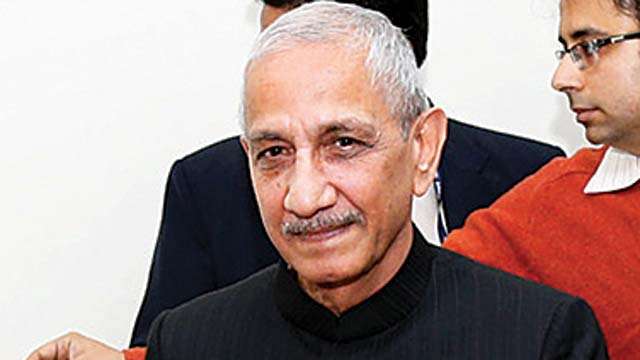“Success is the combination of the strength of young bulls and the wisdom of old cocks,” a German philosopher once famously said. For a nation to be successful, wisdom of old men is necessary. Sub-continent has seen some of the doyen politicians, journalists and jurists who have had remarkable careers in their respective fields. It is pertinent to mention here that every prominent politician or journalist started his/her career at a young age. Their efforts at young age helped the sub-continent to grow in socio-economic and cultural fields.
Sub-continent has also seen dynasty politics with many families like Bhuttos, Nehrus and Abdullahs ruling their electorate for several decades. While the efforts of the politicians belonging to these dynasties has been noteworthy, time has come when young politicians with no hereditary baggage would hit the political scene with fresh ideas, innovations and a zeal to transform this region of Asia as a world super power.
The countries like India, Pakistan and Bangladesh are on the wrong side of history when it comes to child mortality, hunger, malnutrition and poverty. A major chunk of people living below the poverty line are found in these three nations.
A spoon-fed, chauffeur-driven scion of a well-known politician can hardly gauge the pain of an undisguised commoner on the streets. A person who has always travelled in an air-conditioned car can hardly understand the problems a common man faces in an over-crowded bus.
While dynasty politics is not rare to South-Asia but the amount of callousness that the progeny of great leaders have shown to the masses at ground level is a queer surprise of democracy. Though one can hardly deny the fact that the scions of these political big shots are citizens of this country and the constitution of Indian grants them the right to contest elections as much as it grants to anyone other citizen of India. Can we ask what is the ground level connect of leaders like Jyotiraditya Scindia, sachin Pilot, Naveen Jindal, Akhilesh yadav, Priya Dutt or for that matter Rahul Gandhi? Part from gimmicks of a Rahul Gandhi staying put in a Dalit slum for a night, or a Jyotiradatiya Scindia spending time with the tribal people, what else connects these high-heeled leaders to the problems of the common masses?
They owe their prominent position in politics not to a freshness of ideas or to a grassroots connect, but to the silver spoon handed over to them by their parents or grandparents. It should come as no surprise that their mindsets and ideas are usually inherited, just like their positions. They owe their power to a particular order. It is entirely logical for them not to want to disturb that order. It is business as usual which ensures their survival. Status quo mindset runs in their blood like RNA and DNA.
Every young minister in the UPA Government is the progeny of a Congressman or woman. How often do you see Messrs Scindia, Pilot, Prasada, Singh and Deora spending time building up mass bases in their states; at the very least listening to the voices of the youth on the ground? Like many of their ilk, they are too busy preserving the powerful and wealthy political empires that have been bequeathed to them.
However, there are some honorable exceptions. Orissa Chief Minister Naveen Patnaik is a good example who inherited his father Biju Patnaik’s political legacy but has worked very hard at building his own stature. Patnaik, who once upon a time lived largely outside India, has barely left the borders of his state in the almost 15 years he has been in power. He has his ear to the ground constantly.
Former Rajasthan Chief Minister Vasundhara Raje also inherited a political legacy but chose not to rest on it. Not satisfied with being just a Union Minister, she ruffled many feathers as she stormed the male-dominated politics of Rajasthan to become Chief Minister of the state.
Coming to the state of Jammu and Kashmir, we see how the National Conference or the Congress bigwigs are holding the power to themselves for decades. An aged Sheikh Nazir of National Conference is unwilling to handover the post of party’s General Secretary to a young politician. Same is the case with Chawdhary Muhammad Ramzan, Abdul Raheem Rather, Ali Muhammad Sagar and Mian Altaf who despite having the coveted ministerial posts for decades together are reluctant to make way for younger politicians. They are not willing to call it a day and handover the reigns of the party to younger generation. Though the party roped in a young Nasir Aslam Wani to contest from the Amira Kadal constituency in the previous elections, he also happens to be a scion of a political family that donned the political scene of Sogam area of North Kashmir from the early sixties.
Same is the case with the People’s Democratic Party (PDP). Mufti Muhammd Sayeed still has ambition to become chief Minister of the state. Muzafafr Hussain Being is also likely to fight the next elections. State Congress party is also no exception. Taj Mohiudin has been a minister of the state for a good twelve years now. Ghulam Nabi Azad also has the unfinished business of being the Chief Minister of the state for a full term.
Time has come for these parties to give mandate to younger candidates so that they can usher a new era of democratic progress in the state of Jammu and Kashmir. The people of Kashmir would be ever thankful to the senior politicians of the state but time comes for everyone. There is a vast disconnect between the executive policies of these experienced politicians and the thinking of the youth. Time has come for young minds of Kashmir to wade in the rough waters of politics.














Leave a Reply